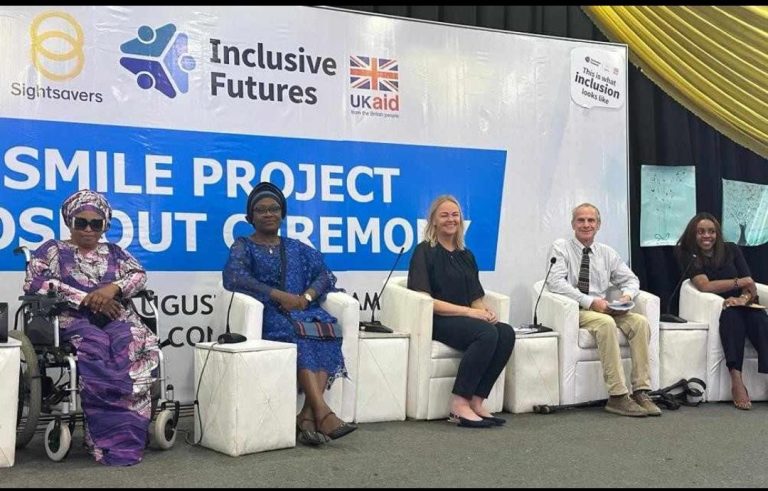By Justina Auta
Stakeholders on Wednesday advocated for an end to special schools for children with disabilities, urging support to mainstream inclusive education for all persons to learn equally.
They made the call during the close-out meeting of Support Mainstreaming Inclusion so all can Learn Equally (SMILE) project in Abuja.
Dr Sunday Isiyaku, the Country Director, Sightsavers Nigeria and Ghana, said making schools more inclusive for all learners would promote the well-being, inclusion and ensure People with Disabilities (PWDs) were not left behind in access to quality education.
Isiyaku stressed the need to strengthen the systems by implementing policies that would encourage inclusive education, as well as train teachers to enable them impact on the students.
According to him, the SMILE project was piloted in some selected schools in Jema’a Local Government Area of Kaduna State to gather evidence on effective inclusive education practices that could inform the education sector.
“The project aim at ensuring that children with disabilities can go to normal schools.
“The general idea is to have children with disabilities go to special schools, but the reality of life is that they attend special schools, but outside these schools they face challenges in terms of integration with communities.
“So, this project is saying that normally most parents, who have children with disabilities are concerned that the child cannot get adequate education.
“So what we are aiming to say is that a child can have a good inclusive education and what the project has done is to make the parents aware and to send their children to school.
“Let’s make sure that teachers are trained to teach children with disabilities, so that they can learn and communicate with their peers in school,” he said.
Mr James Lalu, the Executive Secretary, National Commission for Persons with Disabilities, represented by Mrs Nike Akinbola, the Head, Development Programmes and Planning Unit, said fast-tracking inclusive education will ensure PWDs are at par with their counterparts globally.
“Studies have shown that children with disabilities constitute more than 50 per cent of all the 10.5 million of out of school children in Nigeria.
“And according to the United Nations, UNICEF, about 95 per cent of children with disabilities amount to several million children with disabilities that are out of school in Nigeria.
“Remember that children with disabilities also need to become professionals one day, ministers and want to grow up to be president of this country too,” he said.
Also, Mr Aisue-Dion Akhere, the Deputy Director, Special Needs, Federal Ministry of Education, said: “The Federal Government has already reviewed or they are in the process of completing the review called National Policy on Inclusive Education.
“This will make sure that all children with disability are involved in any segment of the education sector.”
Also, Ms Zainab Isah, a teacher at UBE Township Kafanchan, Jema’a LGA, commended the government, Sightsavers Nigeria and other donor partners for improving access to quality education for children with disabilities.
“The SMILE project has put smiles on their faces and many lives, especially those with special needs because the parents feel so secured and happy to take their children to school,” she said.
Other highlights of the event was the presentation by students with disabilities under SMILE project and award presentation to supportive partners towards the success of the project.


